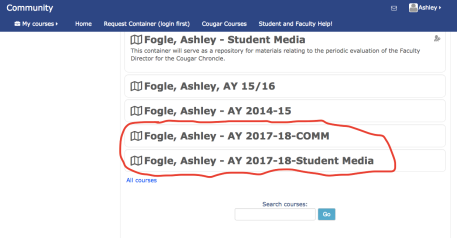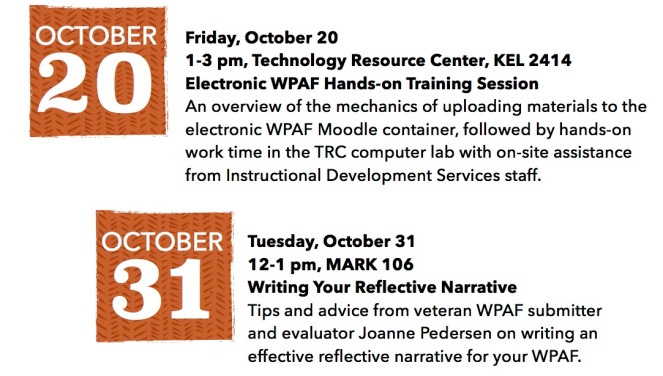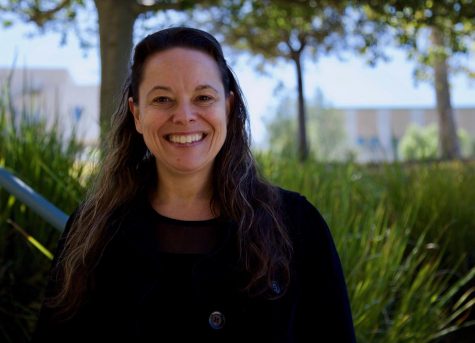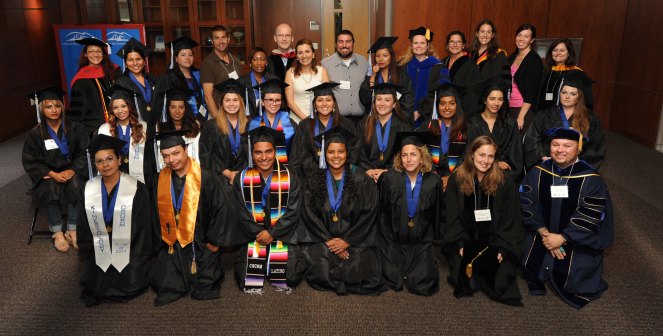Our Fall WPAF workshop series kicked off on Friday with a full house of lecturers. Friday’s session covered the basics of the evaluation process, with presentations from Faculty Affairs, the California Faculty Association, and IITS.
Patricia Runzel opened the workshop with an overview of evaluation policies and procedures, including timelines and detailed information about the required contents of the WPAF. Her slides are embedded below:
If you were unable to attend on Friday, I highly recommend reviewing this presentation as a starting point. The slides direct you to the relevant university and college policies and highlight the deadlines for file submission, which vary according to appointment type. If you have a Fall, one-semester appointment, your WPAF is due Tuesday, November 7. Make sure you are clear on when your file is due! Patricia’s presentation also covers the specific content that is to be included in the WPAF and closes with a helpful list of resources.
Mayra Besosa from CFA talked about lecturer rights as outlined in our collective bargaining agreement. Article 15 of the contract covers the evaluation process. All lecturers should read and understand all of the provisions of this article, but Mayra highlighted the following important points:
- Per article 15.3, “evaluation criteria and procedures shall be made available to the faculty unit employee no later than 14 days after the first day of instruction of the academic term.” You should have received an email from your Dean’s Office at the beginning of the semester. If you haven’t already, you should find that message and read it carefully to understand what your college or department requires from you.
- Civility and collegiality are not evaluation criteria.
- Anonymous student feedback outside of the formal student evaluation process cannot be included in your file.
- Per article 15.14, if a classroom visit or observation is to be part of your evaluation, you should be given at least 5 days notice and you get input about when the observation will take place.
- Once you receive your evaluation, you have 10 days to submit a response or rebuttal. Mayra recommends that you contact CFA for advice before submitting a rebuttal.
- Your personnel action file is housed in your Dean’s Office. You have a right to review the contents of your file or request copies of any materials in your file.
If you have questions about contract provisions pertaining to the evaluation process, contact Mayra at mbesosa@csusm.edu.
Your WPAF can be submitted in hard copy or electronically. Barbara Taylor from IITS introduced participants to the electronic WPAF process. All lecturers should have (or will soon have!) a container on the community server. Go to http://community.csusm.edu/ and log in with your campus login and password. Look for a link that has your name and AY 2017-18. For example, mine looks like this:

(I have appointments in two departments, so there are two links for me.)
The electronic WPAF is a Moodle container that works exactly like Cougar Courses. Adding the required materials is simple, and the templates have been customized for you according to your appointment type. I recommend logging in and checking out the electronic WPAF system ASAP to familiarize yourself with how it works.
If you are interested in submitting your file electronically and have questions or want to learn more, our second workshop is for you! Barbara will be leading an electronic WPAF training session on Friday, October 20 from 1-3 pm in the Technology Resource Center, KEL 2414. This is a hands-on workshop in a computer lab, so you will have time to work on your file and ask questions. RSVP here if you are interested in participating.
Drop-in assistance is also available at the TRC during regular business hours or you can email cchelp@csusm.edu to ask questions or schedule an appointment.
Thanks to everyone who came out on Friday! If you have questions, feel free to contact me at afogle@csusm.edu and I will help connect you with the resources you need. I hope to see you at the remaining workshops in our series!

 Cynthia Headley, lecturer in Literature & Writing Studies, was the subject of a features profile by former student Bryanna Martinez in the October 25 edition of The Cougar Chronicle.
Cynthia Headley, lecturer in Literature & Writing Studies, was the subject of a features profile by former student Bryanna Martinez in the October 25 edition of The Cougar Chronicle.


 Sahar Mosleh is a lecturer in Computer Science and the 2016-2017 recipient of the President’s Outstanding Faculty Award for Outstanding Lecturer.
Sahar Mosleh is a lecturer in Computer Science and the 2016-2017 recipient of the President’s Outstanding Faculty Award for Outstanding Lecturer.




